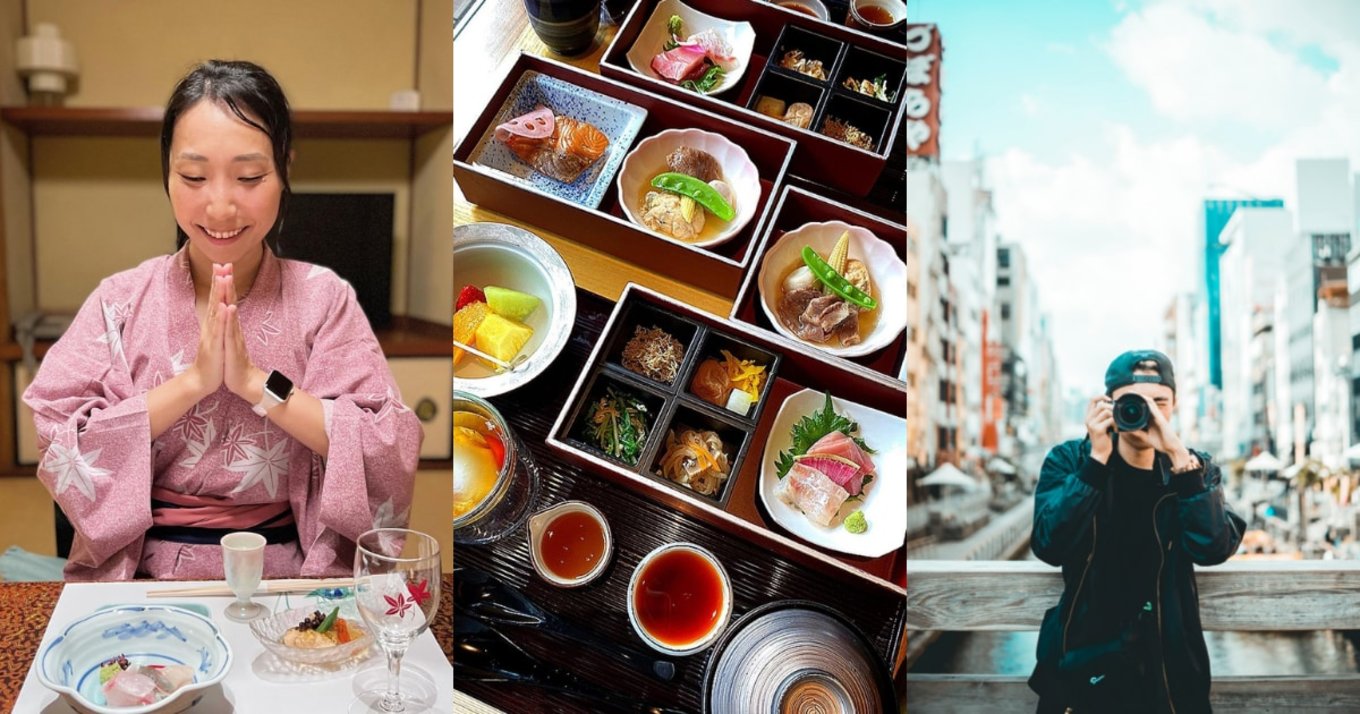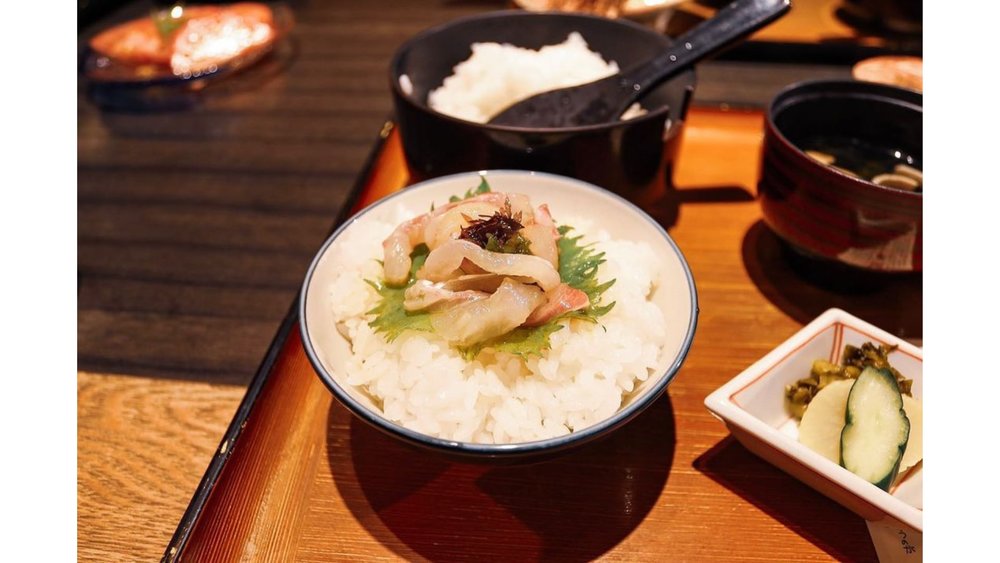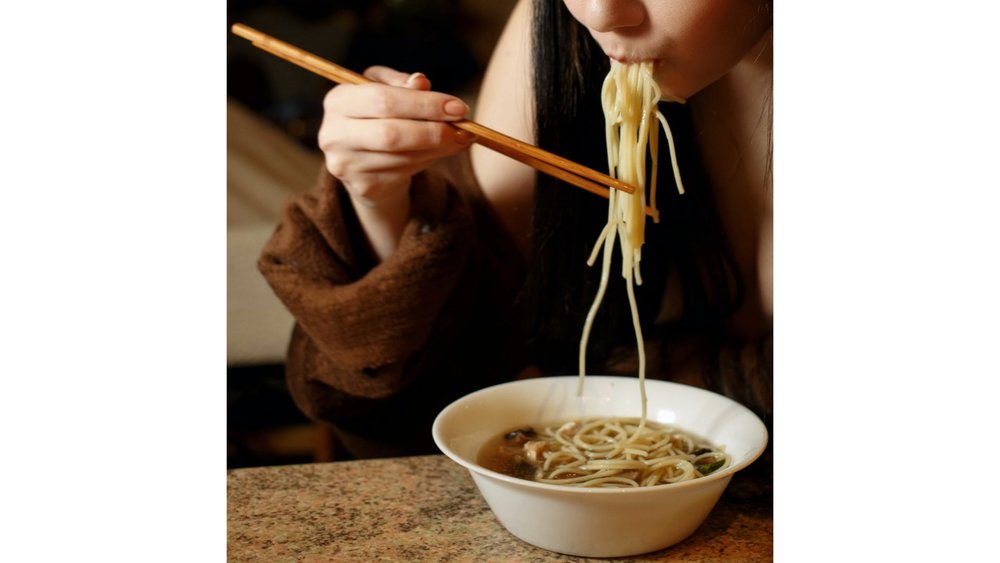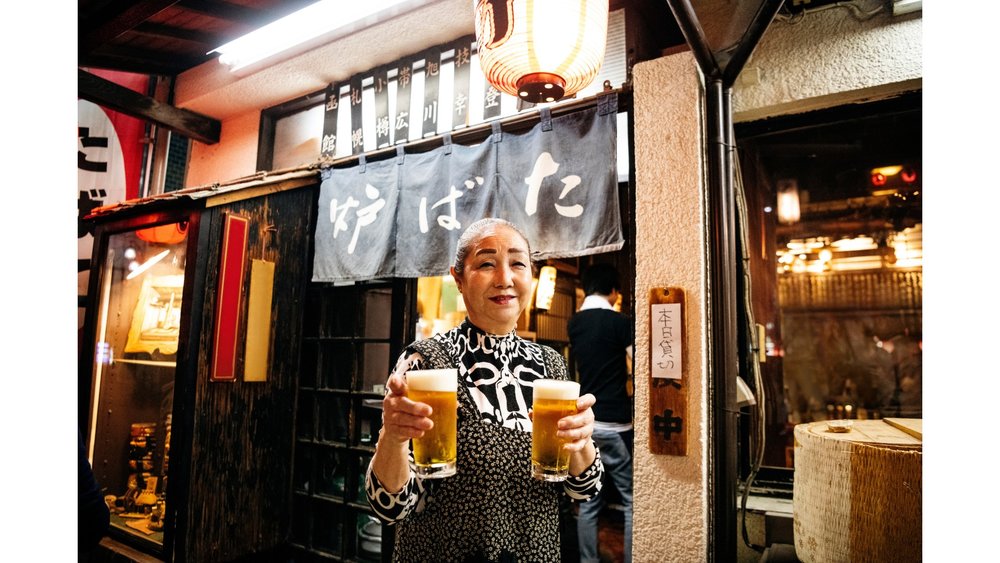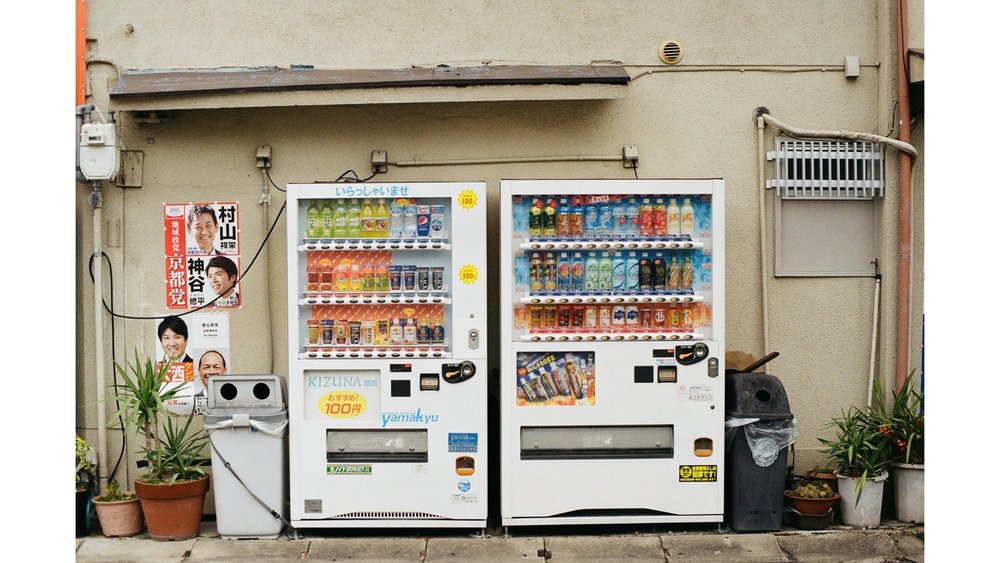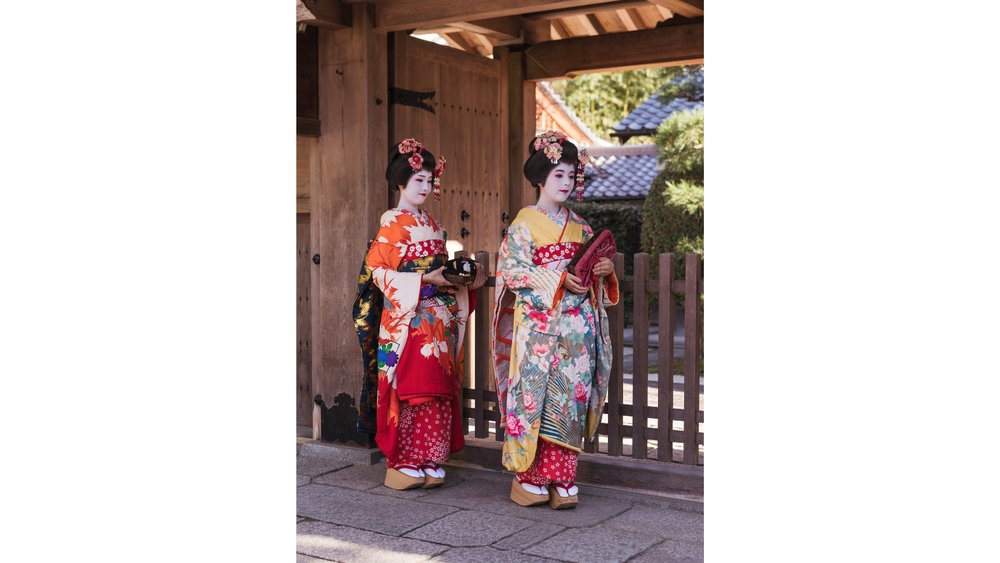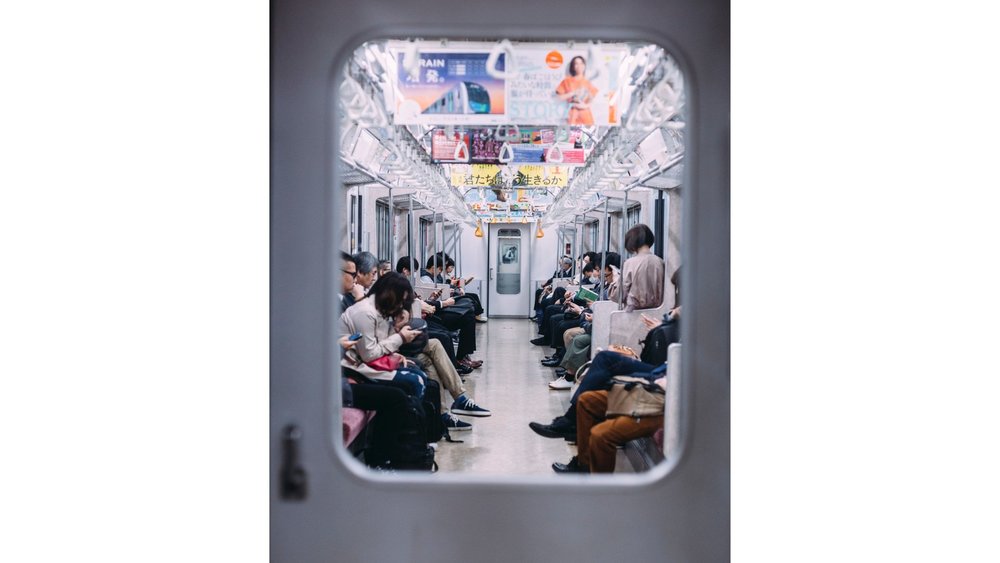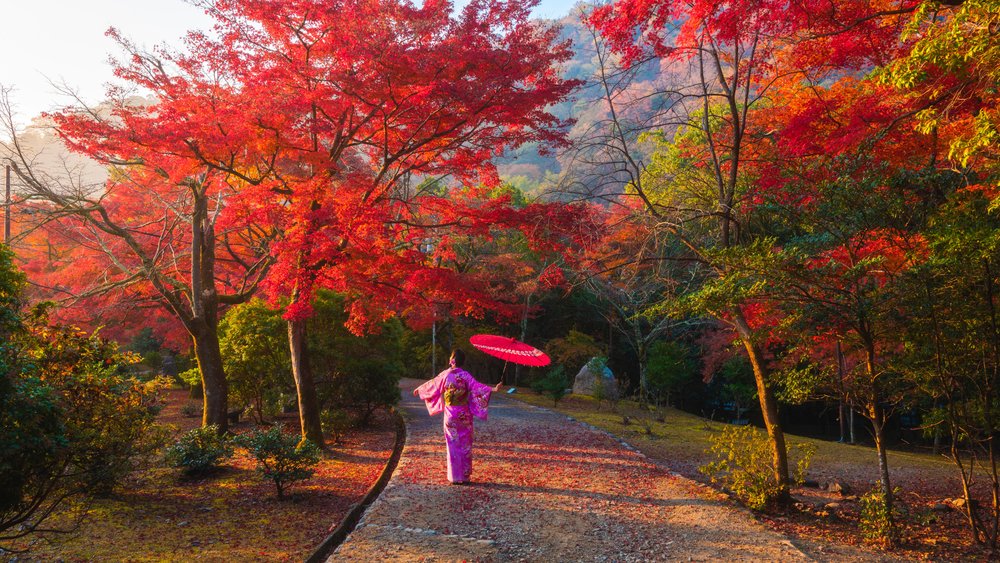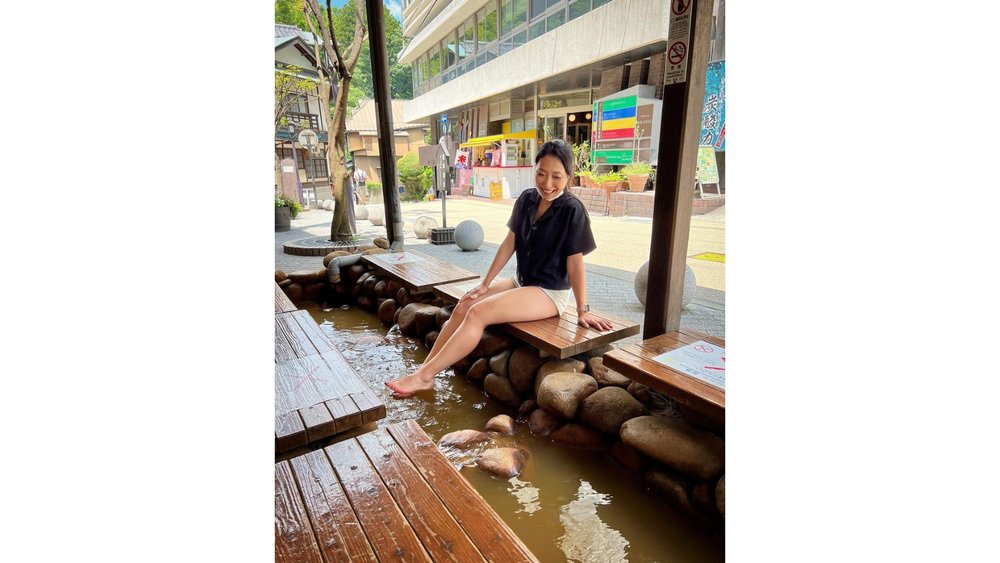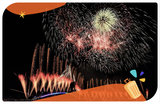One of the first things you’ll notice during your Japan travel trip is how incredibly welcoming Japanese are towards foreigners (thank you Japan!). They are well known for their politeness and deep rooted traditions, so they definitely don’t expect travellers to know all the social faux pas right off the bat. If embracing local traditions and culture is your type of travelling style,you'll find these tips about the do’s and don’ts in Japan invaluable.
From food etiquette to travelling on public transport, there's a whole list of things to do and things you are best to avoid, but luckily for you, we've done the hard yards and created a 101 travel guide on the must know’s before travelling to Japan!
Food etiquette
- Taste the local cuisine
- Slurp to your heart's content
- Master the ways of the chopstick
Street etiquette
- Dont walk while eating
- Hang on to your rubbish
- Don’t count your change
- Don’t bombard the geishas and maiko for selfies for your gram
- Don’t blow your nose in public
- Know your way around the Escalator
- Be quiet on public transport
- Take your shoes off indoors
Extra Japan travel tips
- Learn some useful Japanese phrases
- Learn the customs of bowing
- Purchase tickets to major attractions in advance
- Don’t let the nudity hold you back from enjoying an onsen
Food Etiquette
When travellers think of Japan travel, they wouldn’t be wrong in instantly thinking about the food. The endless sushi, ramen, yakitori bars, michelin star restaurants to cheap street eats (we’re drooling). Food experience is truly an attraction within itself in Japan. Although, as some travellers that have already done their Japan travel trip know - there are some big food etiquette do’s and don’ts in Japan.
Here’s a quick list of the ones to keep in mind during your food exploration of Japan.
1. Taste the local cuisine
As great as it is to have a maccas run at 2 am, smashed avo and a flat white for breakie… be sure to try out the local cuisine! You'll be surprised at what you find, and if traditional japanese food isn’t your style, Japan is famous for making western cuisine for a Japanese palette, think chocolate fries, sakura starbucks drinks and hamburger steaks. So next time you're craving some western food, why not try some local combini (convenience store) snacks or some plum wine instead of your go- to sauvignon blanc.
Whilst treating your taste buds on your japan travel food tour, just keep in mind these food etiquette do’s and don’ts in Japan
Do’s
- Say “itadakimasu” before eating to give thanks for the meal that you are about to eat
- You're allowed to Lift bowls of rice, noodles and small plates up to make the chopsticks experience easier for yourself
- Do slurp noodles with broth
Don’ts
- Burp at the table - this is considered rude in japan
- Avoid lifting larger plates off the table to eat out of them, transfer smaller portions to a smaller plate before you eat
- Don’t blow your nose at the table or anywhere in public for that matter
- Don’t slurp noodles that don’t have broth like pasta
2. Slurp to your heart's content
On the topic of slurping… you may get some weird looks for being a loud eater in the west, but throw all your quiet like a mouse training out the door when travelling to Japan. The louder you slurp your bowl of noodles the more it's considered a compliment to the chef, so out of respect for the food and the chef, slurp to your heart's desire, but try not go overboard…
3. Master the ways of the chopsticks
Chopsticks have a heavy symbolic meaning in Asia, so in order not to offend anyone it's best to be aware of some of the do’s and don’ts in Japan while using chopsticks. Try your best to avoid these:
- Sticking your chopsticks upright in your rice bowl. You might have already heard of this one but do not know the reason why it's quite so “taboo.” This particular ritual is reserved for funerals and is extremely disrespectful as it is a reminder of death or bad luck
- Rubbing your chopsticks together aggressively in your palms is a complete no no. If there are wooden splinters, feel free to gently rub one chopstick against the other to remove them.
- Don’t stab your food with chopsticks! Unless you're a toddler who hasn’t quite mastered the art of chopsticks, stabbing pieces of food can offend people.
- Avoid passing food from chopstick to chopstick. If you're really in a sharing mood, then you can take food from their plate directly and place it on your plate before eating it.
- Don’t point at things with your chopsticks, it's weird with a fork and knife, it's also weird with chopsticks, so better avoid it…
- When sharing a communal dish, flip your chopsticks around and use the opposite end to serve yourself.
- Keep your chopsticks parallel, and don't cross them over in any way
Now you might be asking are there any do’s you should know about? There are a few, but most importantly just enjoy the experience!Nobody is expecting you to be a pro and most restaurants will have a fork on hand if you're in a dire situation, the most important thing is just to try your best to be respectful.
Street etiquette
Mastering the ways of blending in comes down to being able to do what locals do, but if you're in a rush and don’t have time on your hands to people watch, this do’s and don’ts in Japan list will keep you up to date on how best to blend in during your Japan travel trip.
4. Don’t walk while eating
Leave that big city hustle mentality behind you and stop to appreciate the food you're putting inside your body. Now don’t get me wrong there's plenty of hustle in Japan, but eating while walking between A to B is not the norm and will make you stand out like a sore thumb in the streets of Japan.
We understand that you might miss having your daily hot girl walks with snacks but walking with food and drink in hand can be seen as disrespectful in Japan. Japanese take pride in keeping their streets clean.. So have a seat, slow down, and don’t treat walking from one attraction to another as the perfect time for a snack.
5. Hang on to your rubbish
As mentioned earlier, Japanese are well known for their clean streets, but you'll notice that bins are super hard to find in Japan!. is litter free. This is because japanese hold on to their rubbish until they find a bin, or get home. A tip for finding a public bin in Japan is that there will most likely be a bin at the conbini’s (7/11, Lawsons etc) , next to vending machines or in public restrooms, so happy bin hunting!. It's a sure fire way of getting your step count up!
6. Don’t count your change
Often when you purchase something, your change will be handed back to you on a little tray.ry your best to not count this in front of them as this shows you distrust them and being honest is a big thing that is expected of everyone there. By harmlessly counting your change you could be insinuating that you do not trust them.
On the topic of little trays, its also good to get into the habit of not handing people cash directly, these little trays are there for you to place your money on to pay and receive change.
7. Don’t bombard the geishas and maiko for selfies for your gram
As amazing as it is to see the graceful geishas IRL in the streets of Kyoto… and how epic it would be to catch a selfie with them for your friends and family back home… just remember that this is extremely disrespectful!. As beautiful as they may look, these ladies are not celebrities or tourist attractions. They are working women and to stop them in the streets will potentially make them late for their next engagement, which is a big Japan travel faux pas.
Instead, how about hiring a kimono or Yukata yourself to wander the ancient streets. Locals love to see tourists fully embracing their culture and what better way than to wear their traditional clothes. If dressing up isn’t for you there will most likely be “fake” geisha scattered around the streets who are always more than happy to take a photo with you! They will probably be walking at a slower pace and will be on the more busy streets.
8. Don’t blow your nose in public
This should already be ingrained in your everyday post-covid etiquette but in Japan it was looked down upon even before covid hit. Sniffling and blowing your nose loudly can result in you standing out and people looking at you in disgust, unless that's something you're into. Regardless It's best to wear a mask in public if you're feeling even the faintest bit under the weather.
9. Know your way around the Escalator
If you're observant or coming from a large city you're probably aware of this rule already, but when using the escalator in Japan, the left side is for standing and the right is for continuous walking. So if you feel like your step count is capped for the day stay to the left, but if you wanna add a couple more flights of stairs walk on the right.
10. Be quiet on public transport
Looping back to being considerate of others and your surroundings, you'll have people staring in disbelief if you're having a big ol chinwag with your mates, or if you're blasting music loudly through your headphones. Commuters like to keep communal spaces quiet for people that work long hours. Trains are often used as a place to relax, take a nap or play a few games on silent mode.
On the topic of public transport, it is definitely the most efficient way to get around japan, so be sure to grab yourself a JR Pass to make transport between cities easier for yourself!
11. Take your shoes off indoors
Wearing shoes indoors is seen as extremely unhygienic and you'll be expected to take them off when entering Japanese households, schools, temples, some restaurants and hospitals. But alas, don’t fret as you'll usually be given some slippers to walk around in instead. If you see a row of shoes lined up at the entrance just know that you will also be expected to remove your shoes. There will also be slippers that'll only be used in the bathroom. Dedicated “toilet slippers” so when entering the bathroom swap your indoor slippers also for these, then when finished swap them back to your indoor slippers.
Extra Japan travel tips
12. Learn some useful Japanese phrases
Locals aren’t expecting you to be fluent, but, learning a couple phrases to help you out in the train stations, or when ordering food can really help. As a bonus you'll usually see locals' faces light up when you put in the extra effort, it really shows that you appreciate their culture and customs.
Here's some useful everyday phrases
- Konnichiwa- Hello
- Sumimasen - which usually means sorry, but also can mean excuse me
- Arigato gozaimasu - thank you
- Ohayou gozaimasu- good morning
- Konbanwa- good evening
- Sayonara- goodbye
- Hai - yes
- Toire wa dokodes ka? - Where is the toilet
- Eigo wo hanasemasu ka? - Can you speak english?
13. Learn the customs of bowing
In the west, bowing is not a instinctive as shaking someone's hand, but generally speaking, bow when someone else bows to you and you'll pick up this custom fast, or at least learn to do a polite head nod.
14. Purchase tickets to major attractions in advance
This saves the stress of getting FOMO in Japan, as some of these activities can sell out fast. Attractions like Disneyland sell out fast, so plan ahead and make sure you book the top attractions in Japan,especially if you're heading over during the peak season of Japan travel, or school holidays!
15. Don’t let nudity hold you back from enjoying an onsen (hot spring) or sento (public bath)
Onsen are an important part of japanese culture, so if you're popping over for the full experience and want to embrace your inner zen, it's definitely a must do for even the most conservative of people. Here's some things to avoid and watch out for during your first onsen experience!
- Rinse thoroughly before entering the hot spring. There are specific areas for washing up, this is to ensure you don’t get outside dirt in the shared pools.
- Don't take photos! There will be people walking around baring all so what you see at the onsen stays at the onsen.
- Be sure to check the tattoo policies of an onsen. In Japan, tattoos are still associated with criminal gangs/Yakuza, so just be weary when entering a public bath house.
- If you don't feel comfortable walking around fully nude, you can cover up a little with a towel before hopping in
- Most Onsens are separated by gender, so its good form to at least learn the Japanese characters so you don’t end up in the wrong area: 男is for men and 女 for women

